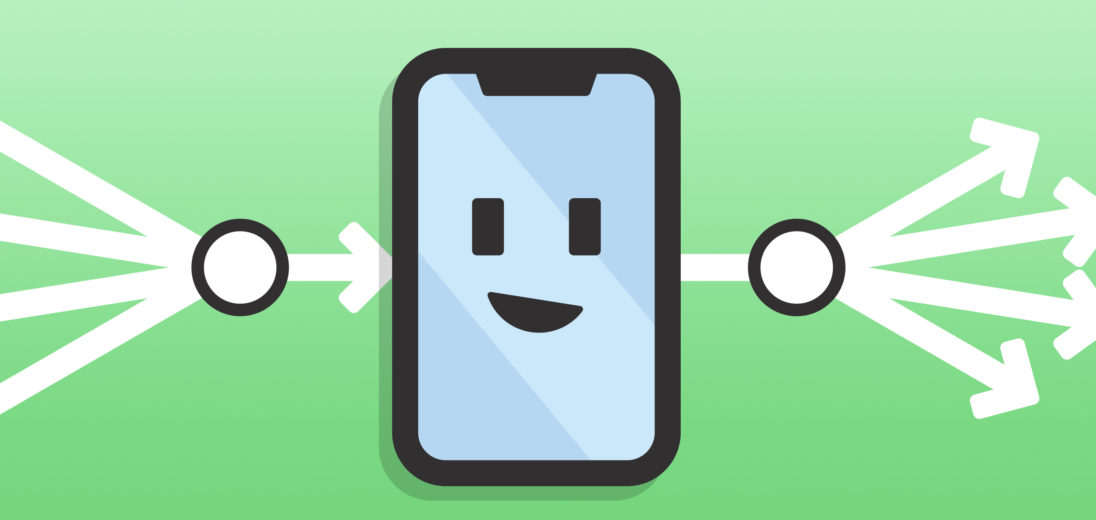People often have a lot of questions when signing up for a new cell phone plan. One of the most common questions is what type of network your carrier uses to deliver service. In this article, I'll answer the question, “What Is CDMA?” and explain the differences between CDMA and GSM cellular networks.
What Is CDMA?
CDMA stands for code-division multiple access. Many different types of communication technologies use CDMA as a channel access method.
CDMA doesn't assign a specific frequency to each user on the communications network. Instead, through a method known as multiplexing, CDMA transmits over the entire frequency range available. As a result, more users are able to simultaneously communicate on the same network.
CDMA vs. GSM
CDMA and GSM (global system for mobile communications) are the two major technologies used by cell service providers in the United States.
One of the big differences between CDMA and GSM is that it’s easier to change phones on GSM networks. GSM carriers use removable SIM (subscriber identification module) cards that hold customer information.
This means that if you own a GSM-locked phone, then you can remove the SIM card from your phone and insert it into your new phone. This allows you to keep the same phone number without necessarily needing to have it ported through your carrier.
However, this isn't always the case for CDMA technology. With CDMA networks, your phone is often tied to your phone number. CDMA carriers have more control over what phones they allow or don’t allow on their network. Therefore, with CDMA technology, you'll sometimes have to get your carrier's permission before you can switch phones.
Which Carriers Use CDMA Networks?
In the United States, Verizon, US Cellular, and a handful of other mobile virtual network operators use CDMA networks. In contrast, carriers including AT&T and T-Mobile use GSM networks.
What Does It Mean If My Phone Is CDMA Unlocked?
If you're already using a carrier on CDMA network, having a CDMA-unlocked phone isn't all that significant. With CDMA networks, your phone is usually tied to your phone number. This means that CDMA carriers, such as Verizon and US Cellular have control over what phones they allow or don’t allow on their network.
Things get more complicated if you want to switch to a GSM carrier with your CDMA-unlocked phone. It's very difficult to unlock a CDMA phone for use on a GSM network. If your CDMA-unlocked phone doesn't have use SIM card, a carrier will have to use special software to unlock your phone for use on a GSM network.
If you intend to keep your phone when you switch from a CDMA to a GSM carrier, make sure to double-check with your carrier first!
CDMA: Explained!
I hope this article helped you get a better understanding of what CDMA is and how it differs from GSM! Make sure to share this article on social media to teach your friends and family about different types of cellular networks. If you have any other questions about your cell phone plan or carrier, leave them in the comments section below!

BE KIND,, IM 81 ,, Want to get a decent phone [ at my age ? ] not sure WHAT carrier i want to go with [ depends on price ] Should i get an unlocked CDMA phone or GSM.? I was told that with an UNLOCKED phone, i could go with just about any carrier with their sim card,, HELP.. Thanks
This was very interesting. My son emphasized to me that the phone he got for me is CDMA, not GSM. However, when I had an annoying problem and let someone at T-Mo, our carrier, have online access to my phone (he was in the Philippines) he did not ask–and I did not think to emphasize–that my phone was CDMA. Assuming it was GSM, he did something to it that totally disabled it. He continued to mess with it for nearly 45 minutes, then got an appt. for me at a local T-Mo store, and marked the work order as solved.… Read more »
Thanks for bringing me up to speak.